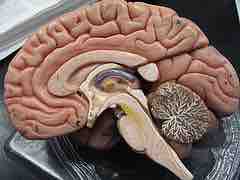The rational model of decision making holds that people have complete information and can objectively evaluate alternatives to select the optimal choice. The rationality of individuals is limited, however, by the information they have, the cognitive limitations of their minds, and the finite amount of time they have to make a decision. To account for these limitations, alternative models of decision making offer different views of how people make choices.
Herbert A. Simon
American psychology and economics researcher Herbert A. Simon defined two cognitive styles: maximizers and satisficers. Maximizers try to make an optimal decision, whereas satisficers simply try to find a solution that is "good enough." Maximizers tend to take longer making decisions due to the need to maximize performance across all variables and make trade-offs carefully. They also tend to regret their decisions more often (perhaps because they are more able than satisficers to recognize when a decision has turned out to be sub-optimal). On the other hand, satisficers recognize that decision makers lack the ability and resources to arrive at an optimal solution. They instead apply their rationality only after they greatly simplify the choices available. Thus, a satisficer seeks a satisfactory solution rather than an optimal one.
Gerd Gigerenzer
German psychologist Gerd Gigerenzer goes beyond Simon in dismissing the importance of optimization in decision making. He argues that simple heuristics—experience-based techniques for problem-solving—can lead to better decision outcomes than more thorough, theoretically optimal processes that consider vast amounts of information. Where an exhaustive search is impractical, heuristic methods are used to speed up the process of finding a satisfactory solution.
The Role of Emotion
Emotion is a factor that is typically left out of the rational model; however, it has been shown to have an influential role in the decision-making process. Because decisions often involve uncertainty, individual tolerance for risk becomes a factor. Thus, fear of a negative outcome might prohibit a choice whose benefits far outweigh the chances of something going wrong.
Robust Decision Making

The Brain's Heuristics for Emotions
Emotions appear to aid the decision-making process.
Robust decision making (RDM) is a particular set of methods and tools developed over the last decade—primarily by researchers associated with the RAND Corporation—that is designed to support decision making and policy analysis under conditions of deep uncertainty. RDM focuses on helping decision makers identify and develop alternatives through an iterative process. This process takes into account new information and considers multiple scenarios of how the future will evolve.